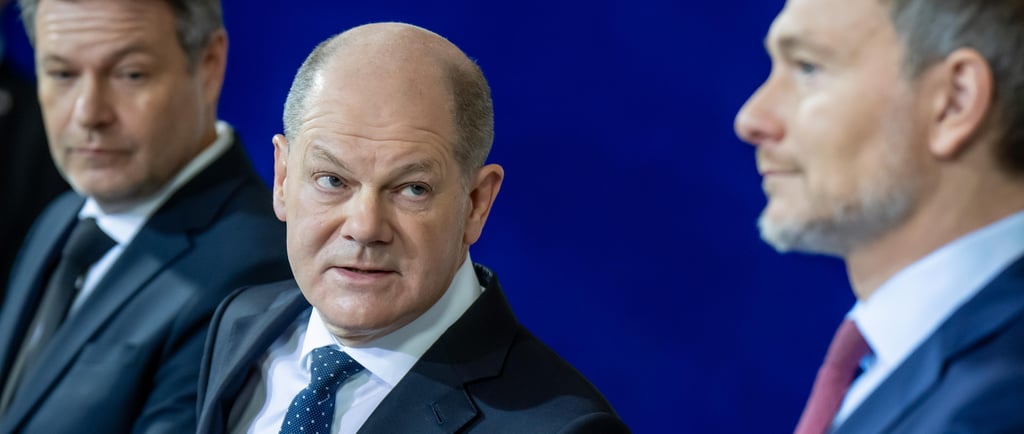Germany: Political Turmoil and Economic Repercussions
Germany, long seen as a bastion of stability within the European Union, is facing an unprecedented political and economic crisis. How will the collapse of its coalition government shape the future of Europe’s largest economy and its leadership in global affairs?
GERMANY
Aisulu Sarmanova
11/30/20243 min read


The governing German coalition has disintegrated: Social Democrat (SPD) Chancellor Olaf Scholz has dismissed Finance Minister Christian Lindner of the liberal FDP party due to disputes about Germany's precarious economy. Lindner's dismissal prompted his resignation from the Free Democrats Party (FDP), dissolving the coalition with Scholz's Social Democratic Party (SPD) and leaving Scholz in a minority administration with the Green Party. Scholz declared his intention to summon a confidence vote on 15 January. If he were to lose, this may permit the conduct of elections by the end of March the following year, six months prior to the elections planned for September 2025.
Scholz attributed the government's failure to Lindner in a speech, portraying his former finance minister as unreliable, inflexible, and irritable. Lindner replied swiftly and with equal acrimony, accusing the chancellor of lacking ambition and leadership. Robert Habeck, the vice-chancellor and minister of economics, recognised that ministers had been involved in a persistent dispute since 2021. He asserted that the government's collapse was both preventable and unwarranted. Habeck is expected to pursue the chancellorship, despite his Green Party being in the most uncertain position among the coalition parties. Recent polls suggest the Greens are experiencing significant challenges, with their popularity at its lowest level since 2017.
After months of escalating tensions over Germany's economic direction and fiscal policies, the situation reached a culmination. Scholz's investment agenda conflicted with Lindner's more conservative approach to government finance. Scholz announced the dismissal of Lindner for obstructing his economic initiatives, informing reporters that "Lindner exhibited no willingness to implement any of our suggestions" and, thus, "there exists no foundational trust for future cooperation." Lindner, however, accused Scholz of soliciting him to suspend the “debt brake,” a constitutional measure that restricts the government's capacity to incur excessive borrowing and accumulate debt. Lindner indicated his reluctance to comply. Scholz and Lindner's discourse was notably incisive. The Chancellor informed reporters that Lindner's egoism was inexplicable. The administration is now contending with the complex issue of addressing the multi-billion-euro deficit in the forthcoming year's budget. The absence of the FDP has exacerbated the difficulties surrounding its passage.
Generally, Germany is characterised by political stability, with the SPD and its conservative counterpart, the CDU, predominantly alternating in office. Despite frequent leadership transitions, Angela Merkel, the nation's former leader, remained a consistent presence in European affairs for 16 years. She maintained a highly contentious relationship with Trump. In 2005, Germany conducted its most recent emergency election. It was Chancellor Gerhard Schröder who summoned them, only to be subsequently defeated by Merkel.
The German federal election on 23 February will determine the destiny of Europe’s largest economy. Voters will go to the polls seven months earlier than anticipated due to the dissolution of the ruling coalition in November. Support for all three parties in the governing "traffic light" coalition, which includes the Greens, the Free Democrats (FDP), and the Social Democrats (SPD) of Chancellor Olaf Scholz, has decreased significantly since the previous election in September 2021. Alongside the populist left-wing Sahra Wagenknecht Alliance (BSW) and the far-right Alternative for Germany (AfD), the centre-right Christian Democratic Union (CDU) and its Christian Social Union (CSU) sister party have experienced the greatest increase in polling. The likelihood of the “traffic lights” coalition being re-elected is low. However, the CDU has recently gained traction, emerging as the most popular party in Germany. Friedrich Merz, the chosen leader of the CDU and a prospective chancellor candidate in the next elections, is a pragmatic figure grounded in conservative beliefs with substantial expertise in international affairs. He advocates for more market autonomy, higher worker participation, and less governmental interference in economic and personal domains.
This ideological shift may attract foreign investment, especially in sectors dependent on deregulated markets or requiring policy stability, such as banking, technology, and manufacturing. Companies may benefit from potential tax changes and optimised bureaucratic procedures, thereby promoting innovation and growth. Domestically, Merz's promotion of enhanced worker involvement might foster collaborations between enterprises and labour unions, improving productivity and labour relations. However, foreign corporations must consider the potential political fragmentation due to the rising prominence of populist groups like the Sahra Wagenknecht Alliance (BSW) and Alternative for Germany (AfD). A CDU-led administration is anticipated to emphasise Germany's role in the European Union, ensuring stability for cross-border commerce and cooperation, even if some policies align with protectionist or regional economic approaches. Businesses may leverage emerging opportunities in a dynamic market by adapting and strategically positioning themselves to benefit from Germany's economic recalibration amid the evolving political landscape.


